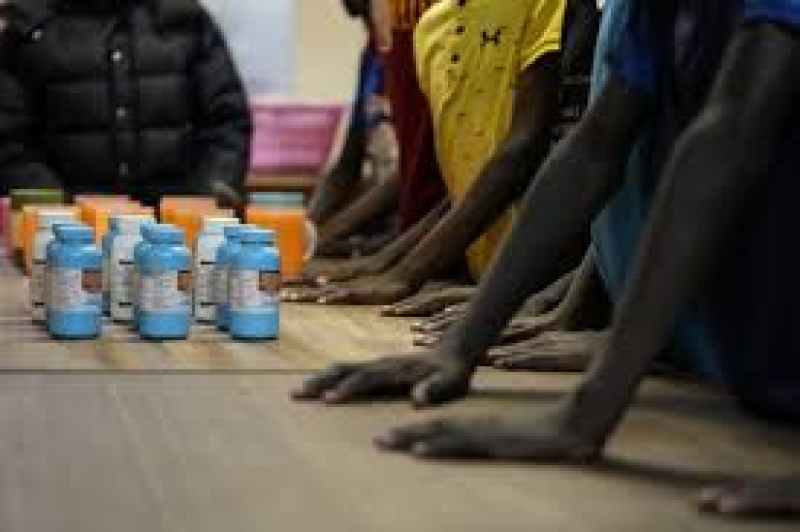- 2025: Resilient Economies, Smart Development, and More Jobs |
- Dhaka rejects India's statement on incident at BD HC residence, New Delhi |
- Stocks end lower; trading falls at DSE, improves at CSE |
- No need to be kind to election disruptors: EC to law enforcers |
- No Media Faced Arson Attacks in 53 Years: Mahfuz Anam |
US Aid Freeze Puts HIV-Positive Orphans in Kenya at Risk

Two-year-old Evans arrived at Nyumbani Children’s Home in Nairobi a year ago, suffering from HIV and tuberculosis. Abandoned and with no family to care for him, Evans was referred to the orphanage after his medical treatment stopped working. Nyumbani Children’s Home, which cares for Evans and about 100 other children, relies on antiretroviral drugs (ARVs) provided through the U.S. Agency for International Development (USAID). But the recent freeze on USAID funding, following an executive order by U.S. President Donald Trump, could endanger their lives.
The freeze aims to review almost all U.S. foreign aid and has already caused disruptions globally, with thousands losing their jobs and essential humanitarian programs coming to a halt. For children like Evans, this could be a matter of life and death.
Sister Tresa Palakudy, who has cared for children at Nyumbani for 28 years, remembers the painful days before USAID’s support. “When we started caring for them, they didn’t look like they had life in them,” she recalls. Without access to ARVs, many children died. But the introduction of ARVs through the U.S. President’s Emergency Plan for AIDS Relief (PEPFAR) in 2003 brought hope and saved lives.
For two decades, USAID and PEPFAR have funded HIV treatment in Kenya, including more than $8 billion for around 1.3 million people. Nyumbani has received more than $16 million between 1999 and 2023, allowing it to reach 50,000 children through its rescue center and outreach programs.
However, direct funding from USAID was discontinued in 2023 following a policy shift and allegations of sexual abuse at Nyumbani. While these investigations were inconclusive, the funding changes were unrelated to the allegations, instead reflecting a shift to channel aid through the Kenyan government. This has resulted in the scaling down of outreach programs and a reliance on government institutions for support. Yet, Nyumbani still depends on USAID for ARV supplies.
Now, with the freeze on USAID funds, Nyumbani is facing an uncertain future. “The Kenyan government announced that they only have ARV stocks to last six months,” said Executive Director Judith Wamboye. For the 1,602 orphans and vulnerable children in Kenya reliant on PEPFAR, the situation is dire.
Mercy, who has been under Nyumbani’s care for 12 years, fears that without continued access to ARVs, her health will deteriorate. “I am afraid that the illnesses I had when I was younger will come back,” she said. “Now that I’m ready for college, I fear it will ruin everything.”
The orphanage requires $1,139 per child annually for HIV treatment, including ARVs, viral load testing, and medication for opportunistic illnesses. Wamboye warns that if PEPFAR is permanently halted, the cost of ARVs could become unaffordable, and many children will die.
“This is a life-and-death situation,” said Wamboye. “We cannot wait. Something needs to be done urgently to save lives.”

